The best rod length for bass fishing depends on technique and conditions, but a versatile choice is between 6.5 to 7.5 feet. This balances casting accuracy, distance, sensitivity, and power. Short or longer rods may be preferred for specific techniques like flipping or pitching.

Table of Contents
Bass Fishing Techniques
When I first started fishing, I quickly realized that not all fishing techniques are identical. Different species require different approaches, and bass is no different. Two common techniques I frequently use when bass fishing are worms and jigs, and flipping and pitching.
Worms and Jigs
These are classic bass fishing techniques, often employed when bass are holding tight to structure or cover. In these scenarios, you’ll want a rod that’s precise, providing both casting accuracy and sensitivity. A medium or medium-heavy rod that’s 6’6″ to 7 feet long is usually ideal.
Flipping
When I’m flipping, I’m usually in situations where the bass are hiding in dense vegetation or under docks. This technique requires a longer rod to deliver the lure accurately over a short distance. A rod that’s around 7’6″ to 8’0″ with a heavy power rating is often recommended for flipping.
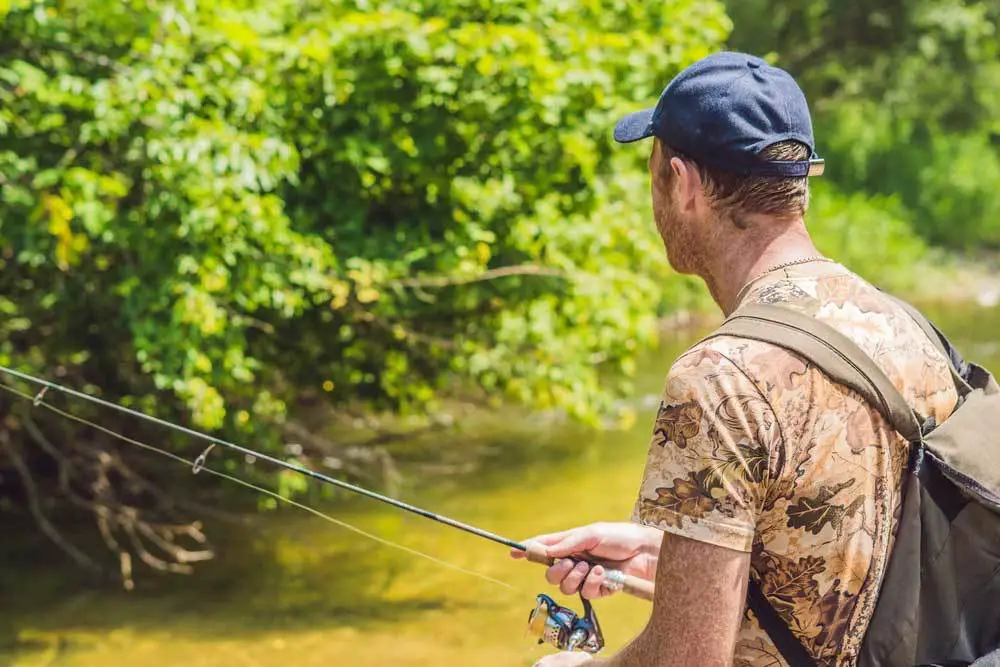
Pitching
Like flipping, pitching is used to present a lure into tight spaces with a high level of accuracy. However, the distances involved are typically a bit longer. For this, a 7-foot rod with a medium-heavy power rating provides the right combination of control and distance.
Topwater
Fishing topwater lures is an adrenaline-filled technique that can bring bass exploding to the surface. To achieve the proper action on topwater lures, I find a rod that’s about 6 to 7 feet long with a medium power rating and a fast action to be the best fit.
Spinnerbaits
Spinnerbaits cover a lot of water quickly, and they’re often fished around cover. A rod that’s 6’6″ to 7 feet long with a medium to medium-heavy power rating is great for handling these types of lures.
Crankbaits
Crankbaits dive under the surface, and the depth they reach depends on their design. When fishing with crankbaits, I’ve found that a 6’6″ to 8-foot rod with a medium power rating and a moderate to fast action works best.
Frogs in Heavy Cover
When the bass are hiding under lily pads or other thick cover, nothing beats a frog lure. For this, you’ll want a rod that’s 7 to 7’6″ feet long with a heavy power rating to haul those bass out of the vegetation.
Drop Shotting
Drop shotting is a finesse technique often used for wary or pressured bass. I find a rod that’s 6’6″ to 7 feet long with a medium-light power rating and a fast action works best for this technique.
Deep Diving Crankbaits
These lures go down deep to find bass in cooler water or during winter months. A 7’6″ to 8-foot rod with a medium or medium-heavy power rating helps achieve the right action and casting distance with these lures.
Swimbaits
When targeting big bass, swimbaits are a go-to choice. Because of the size and weight of these lures, a 7’6″ to 8-foot rod with a heavy power rating is usually the best choice.
In all these cases, remember that the ideal rod length can vary based on a variety of factors, including your personal style and the specific conditions on the day of fishing. Always consider these factors when choosing a fishing rod.
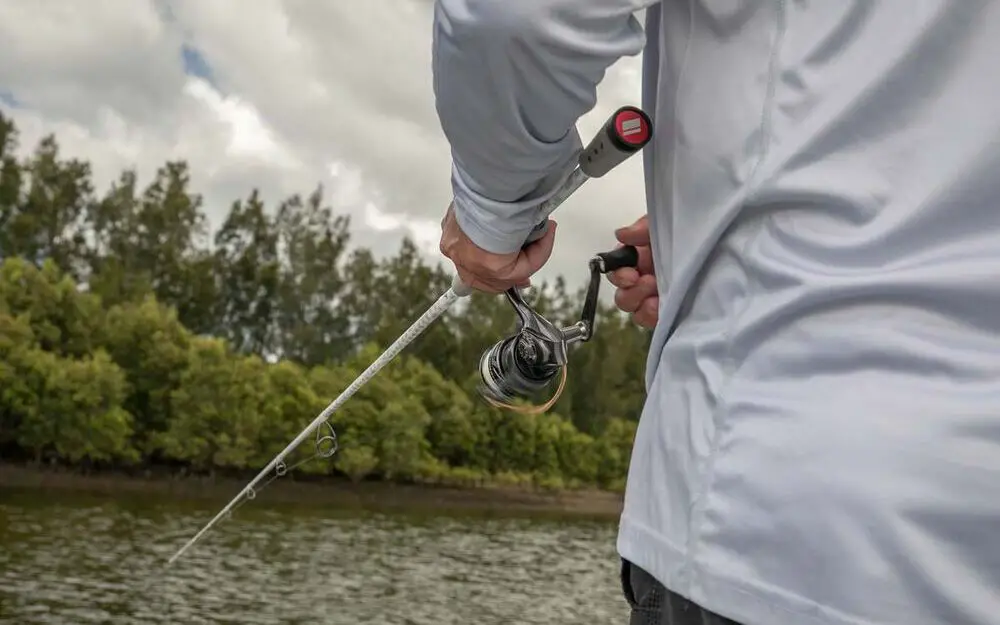
Table of Techniques and Rod Length
| Technique | Recommended Rod Length |
|---|---|
| Worms and Jigs | 6’6″ – 7’0″ |
| Flipping | 7’6″ – 8’0″ |
| Pitching | 7’0″ |
| Topwater | 6’0″ – 7’0″ |
| Spinnerbaits | 6’6″ – 7’0″ |
| Crankbaits | 6’5″ – 8’0″ |
| Frogs in Heavy Cover | 7’0″ – 7’6″ |
| Drop Shotting | 6’6″ – 7’0″ |
| Deep Diving Crankbaits | 7’6″ – 8’0″ |
| Swimbaits | 7’6″ – 8’0″ |
Casting Accuracy
The length of your fishing rod plays a significant role in your casting accuracy. Shorter rods, say, around 6 feet, offer more control, thus enhancing accuracy. It’s easier to maneuver, especially in tight spots. There have been times when I’ve needed to thread the needle between two reeds, and my trusty 6-foot rod never let me down.
Casting Range
If casting range is what you’re after, a longer rod will be your ally. I’ve noticed that a fishing rod around 7.5 to 9 feet gives me the extra distance I sometimes need, especially when fishing in surf or larger bodies of water. The longer length allows you to leverage more power, catapulting your lure further.
Sensitivity
One of the key aspects of successful bass fishing is being able to feel the strike of the fish. In my experience, a longer rod can sometimes dampen this sensitivity. A rod around 6.5 to 7 feet has always given me a good balance between the necessary length and maintaining a strong sensitivity to bites.
Rod Action
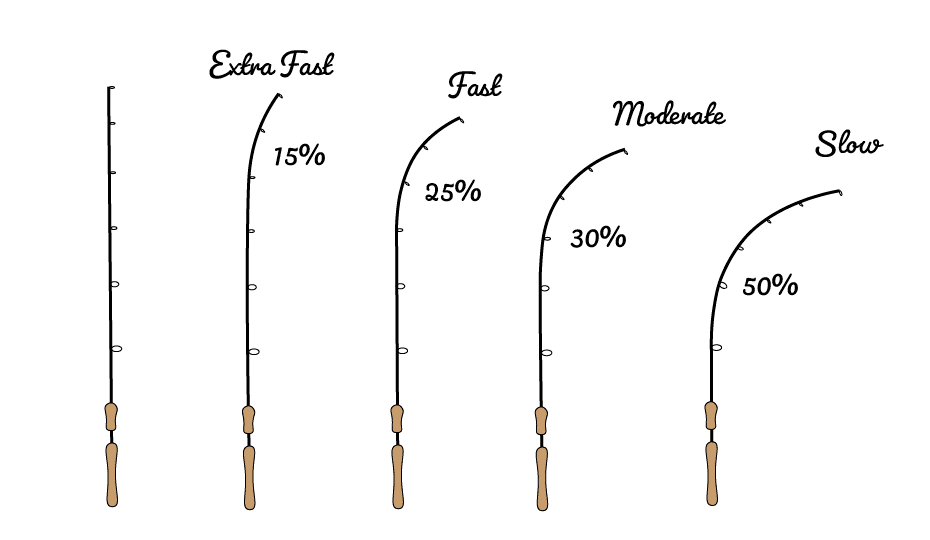
Rod action refers to where a rod flexes along the blank. From my experience, a longer rod usually provides more flex, or a slower action. This can be beneficial when using techniques that require a delay between feeling the bite and setting the hook, like when fishing with worms or jigs.
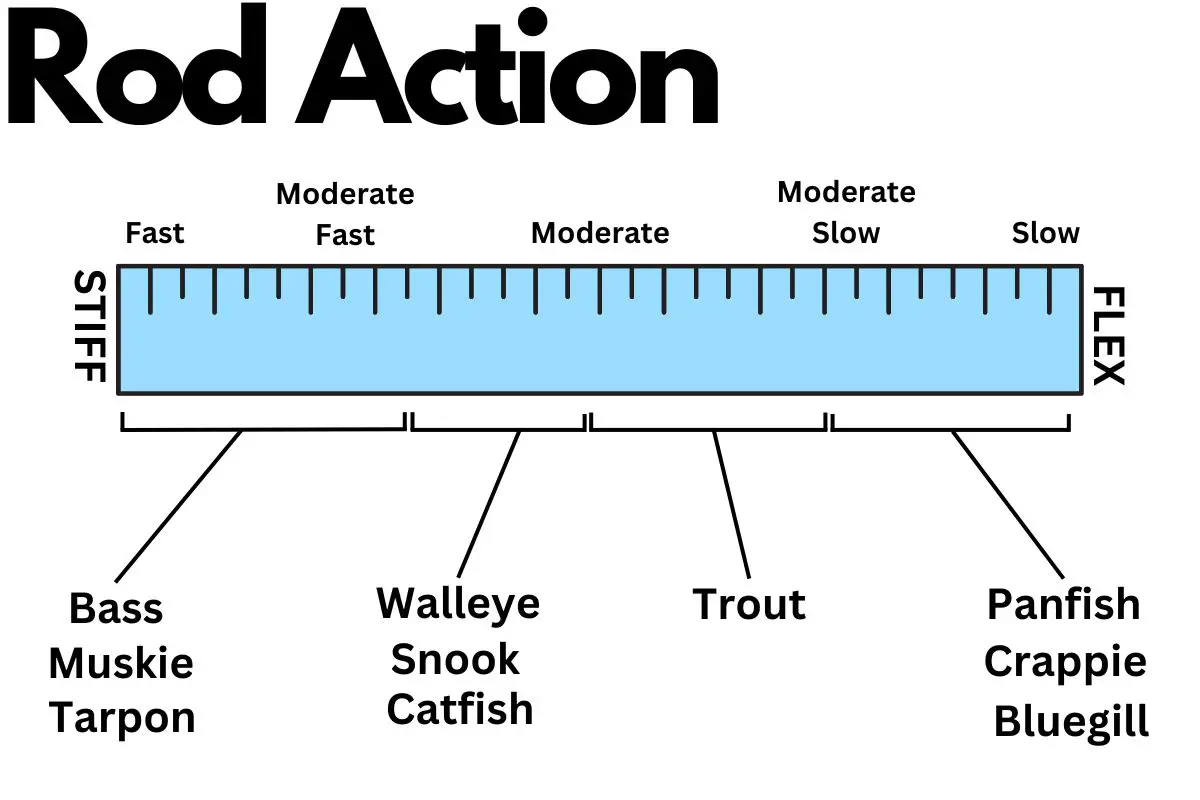
Rod Power
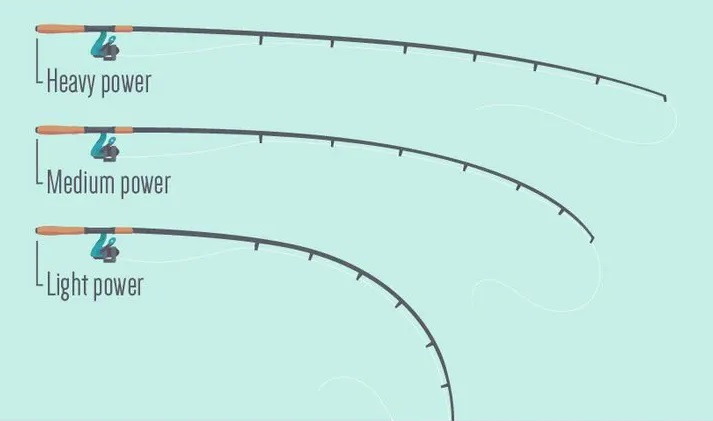
Power refers to a rod’s resistance to bending. Longer rods tend to have more power, which can help when fighting a particularly stubborn bass. This has come in handy for me several times when I’ve hooked an especially aggressive largemouth bass.
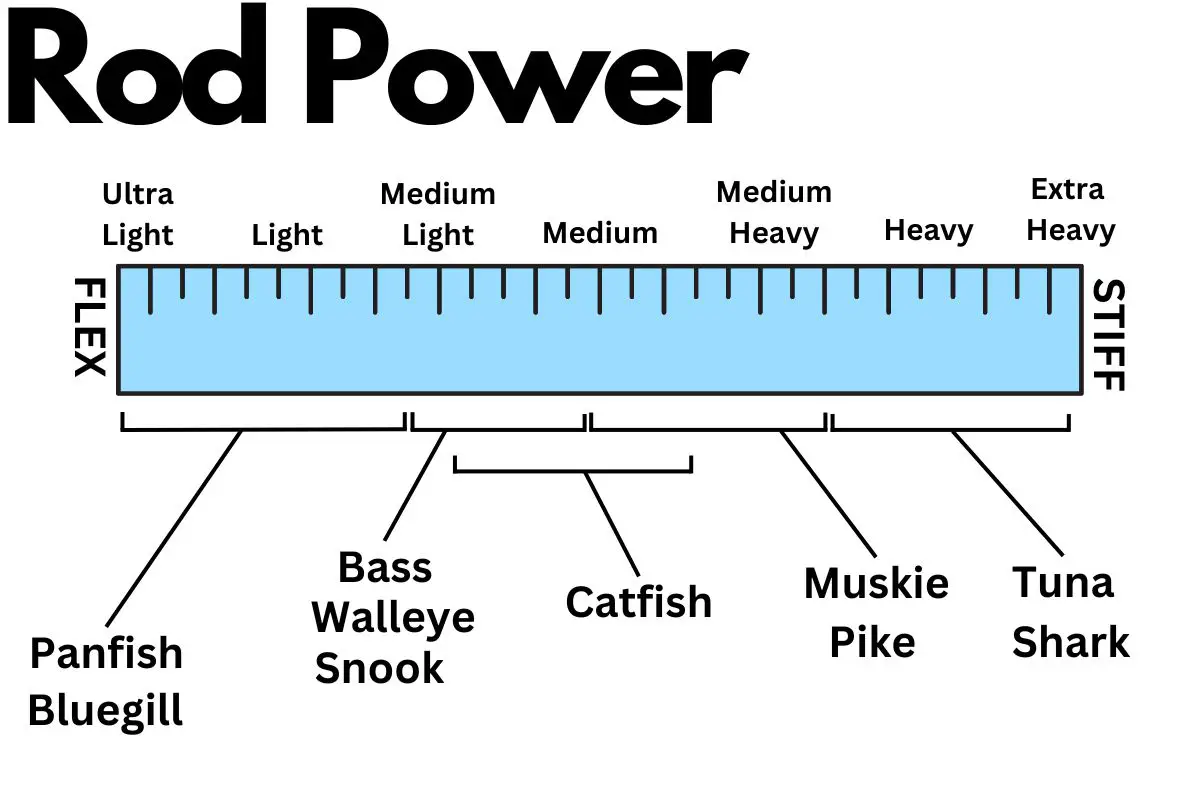
Two and Three Piece Rods for Transport and Storage
If you’re like me and travel frequently for fishing, you’ll appreciate the convenience of two and three piece rods. While they might lack a bit in sensitivity compared to one-piece rods, they make up for it in portability.
I’ve taken my two-piece rod on countless trips, and being able to break it down for transport and storage has been a game-changer.
Popular Rod Brands
- St. Croix Bass X Casting Rods
- Shimano SLX Casting Rod
- G. Loomis E6X Bass Casting Rod
- Abu Garcia Veritas Casting Rod
- Lew’s Tournament Performance TP-1 Speed Stick
- Ugly Stik Elite Casting Rod
- Daiwa Tatula Casting Rod
Conclusion
There’s no definitive answer to what size rod is the best for bass fishing as it largely depends on the technique used and the water conditions.
However, a rod length between 6.5 to 7.5 feet is a good all-around choice for most anglers.
Whether you prefer short or long, the key is to choose the one that makes you comfortable and suits your style of fishing.
